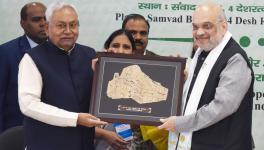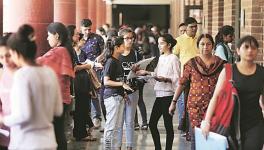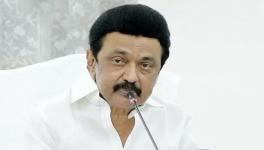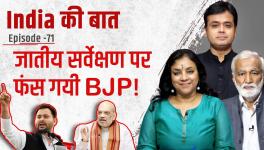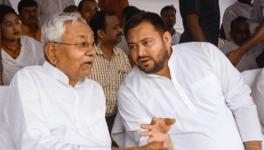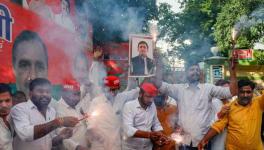Karnataka’s Gurkhas Face Obstacles in Getting Caste Certificates
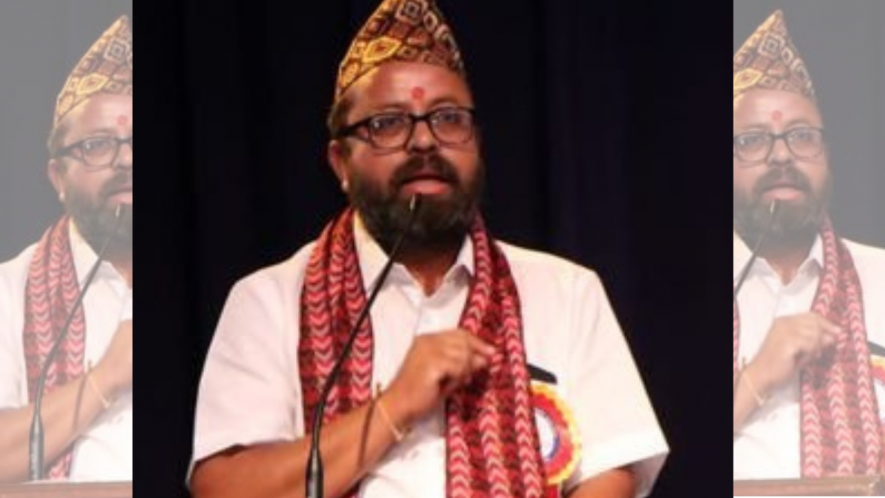
Jogmal R | Image courtesy: Twitter (@JogmalR)
The Gurkha community in Karnataka is in the nascent stage of getting organised. Jogmal R (45), president of the Gurkhas Welfare Association, refers to it as a “micro-community”. Gurkhas were added to the Karnataka State Other Backward Classes (OBC) list in 2002. However, Jogmal alleges that Gurkhas are struggling to receive caste certificates due to various obstacles.
The community leaders want to sensitise and educate members of the public about the issues faced by Gurkhas. For starters, they want the public to shed the misconception that Gurkhas are only Nepali citizens. Jogmal says that he doesn’t even have distant relatives in Nepal anymore.
Nepali, the common tongue of Gurkhas, was given official status in 1992. According to the 2011 Language Atlas, there were 29,26,168 Nepali speakers in India with the largest population (11,55,375 speakers) present in West Bengal, followed by Assam and Sikkim. Karnataka had 19,274 speakers.
Here is an excerpt from an interview with Jogmal R.
Why are Gurkhas struggling to receive caste certificates?
Jogmal: When we submit an application for a caste certificate, officials ask us for our fathers’ caste certificate or school transfer certificate (TC). But how will uneducated people provide these documents? My father was not educated; he didn’t have a caste certificate. Nobody asked for such documents 50 years ago. Till 1990, backward communities did not have opportunities. It was only after the implementation of the Mandal Commission report that our community got opportunities in education and employment.
When I applied for a caste certificate, they asked for my father’s documents. I did not have them. They also asked for his school TC. In many cases, schools don’t register Gurkha as a caste. They ask how can Gurkha be a caste. Instead, they write ‘Rajput’, ‘Yadav’, ‘Kshatriya’ or some other caste. When we approach the authorities, they look at us with suspicion and associate us with Nepalis. They ask whether we are Indians.
Is there no alternative other than TC?
Jogmal: A recent notification made TC not mandatory for issuing caste certificates. We want the authorities to follow this rule in our case. We request them to do a spot Mahajar and verify our claims before issuing caste certificates.
Are there any PhD scholars who have researched the history of Gurkhas and their migration patterns?
Jogmal: No, I am not aware of any. I want to start preparing and studying our genealogies. It will take time. Before Independence, Gurkhas were considered tribes. In the 8th century, there was a spiritual leader called Guru Gorakhnath. We derived our name from him. He set up a spiritual tradition called Nath. If we trace our genealogy, the thread leads to the movement. Bappa Rawal, the king of Mewar, is also our ancestor. His descendants travelled east. Our community can be found in the Northeast. We migrated from these regions.
Do Gurkhas have any particular caste occupation?
Jogmal: Nepali is one of the languages with official status. Many states have been drawn on linguistic lines, but we don’t have a state for Nepali speakers. Since we were not developed educationally, our people work as security guards, cooks, beauticians, etc. Other than this, there is a tradition of our men joining the Army. But our community does not have anyone who can serve as a backbone. We do not have politicians or industrialists. We don’t receive patronage.
Have there been any MPs or MLAs from the Gurkha community?
Jogmal: I know of MPs that have come from north India, but there has not been any representative in south Indian states.
When did you start your organisation?
Jogmal: I started the organisation in 2020. During the pandemic, I saw that all communities were speaking about the issues faced by them, but nobody was speaking for the Gurkha community. I was not aware of any other organisation for Gurkhas in the state. Social justice is realised when the members of a marginalised community come into a position of authority or opportunity. But I have not come across anyone from the Gurkha community being appointed as a Class 1 officer or even as a first division clerk or a second division clerk in the Karnataka government. We don’t know if there are any lawyers in the community. Two years ago, we started the association with the aim of solving the caste certificate issue.
Do you have any allies in your fight?
Jogmal - In December, Congress MLC Nagaraj Yadav asked questions on our behalf to Kota Srinivas Poojary, the minister of the Backward Classes Welfare Department, in the Karnataka Assembly. He asked whether funds could be released for the construction of a Gurkha Bhavan in Bengaluru. I believe this was the first time that the Gurkha community was discussed in the Assembly.
Since Gurkhas belong to Category 1 of the OBC list in Karnataka, some politicians in this category like Nagaraj Yadav and Poornima Srinivas (BJP MLA from Hiriyur) are trying to help us. Both Yadav and Srinivas are from the Golla community (shepherd), which falls under Category 1.
We have an organisation called Karnataka State Category 1 Castes Federation. I’m the vice-president and DT Srinivas, the husband of Poornima Srinivas, is the president. In Category 1, except for three communities (Yadava, Uppara and Bestha) all are micro-communities. Out of the 95 communities in this category, we have leaders from 43 castes in our organisation. Through this association, we make representations to the government.
Which are the important festivals of your community?
Jogmal: Dusshera and Diwali are our most important festivals. But everyone who celebrates them does so in a personal capacity. We do not have communal celebrations. We want to organise cultural events for the Gurkha community. A Gurkha Bhawan would help us reach more members of the community.
What is your profession outside of activism?
Jogmal: I have a small business in Bengaluru offering services like online bookings and package tours.
Where are Gurkhas based in Karnataka?
Jogmal: They are scattered around the state but they can be mostly found in Bengaluru’s rural and urban districts. I am from Kolar but now I’m based in Bengaluru.
Get the latest reports & analysis with people's perspective on Protests, movements & deep analytical videos, discussions of the current affairs in your Telegram app. Subscribe to NewsClick's Telegram channel & get Real-Time updates on stories, as they get published on our website.










